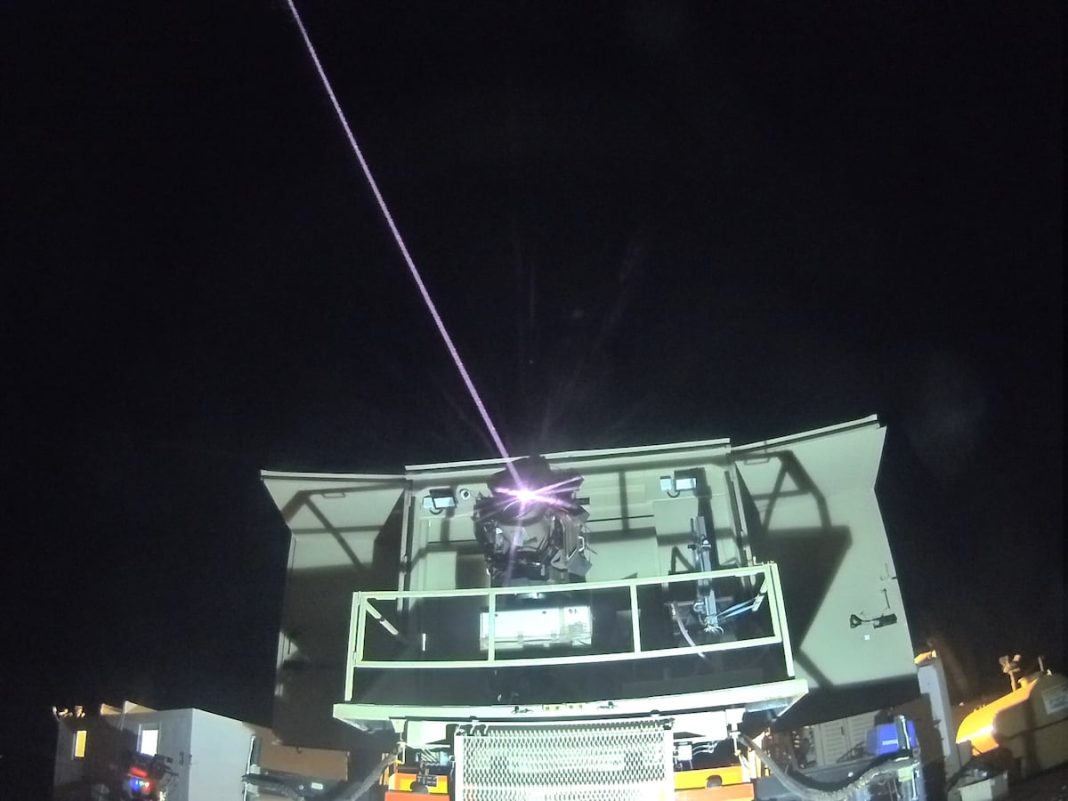Israel to Integrate Iron Beam Laser Defense System Into Air Defense Network
Jerusalem — The Israeli Ministry of Defense announced on Monday that the advanced Iron Beam directed-energy weapon system will be integrated into the country’s air defense network within the next year. This significant development follows a newly signed armament agreement with contractors Rafael Advanced Defense Systems and Elbit Systems aimed at expediting the advancement of the Iron Beam.
Retired Maj. Gen. Eyal Zamir, the director general of the Ministry of Defense, confirmed the collaboration, while military-research chief Daniel Gold emphasized that Iron Beam will function alongside the existing Iron Dome batteries. He noted, “The combination between laser interception and missile interception will further tighten the defense envelope against rockets, missiles, drones, cruise missiles, and other threats.”
Iron Beam represents a cutting-edge laser air defense system designed to neutralize various aerial threats, including rockets, mortar bombs, unmanned aerial vehicles (UAVs), and cruise missiles. The system can follow low-flying targets, emitting a precise laser that disables them with minimal energy consumption.
The recently inked agreement is valued at approximately NIS 2 billion (around $536 million), with Rafael handling the majority of development work, estimated at about 60%, while Elbit supplies the laser cannon component, taking a 40% share.
First introduced at the Singapore Air Show in February 2014, the Iron Beam system has undergone extensive testing and has entered operational development following successful trials in southern Israel three years ago. It is poised to reshape the economics of air defense, wherein the cost of deploying a Tamir interceptor missile via Iron Dome is roughly $100,000, in stark contrast to the negligible cost incurred when using the laser system—only the price of electricity is involved.
Israel’s air defense forces have been facing an increasing threat from drones and missile assaults originating from Lebanon, Iraq, and Yemen, particularly amid ongoing hostilities with Hamas and affiliated terrorist groups. While the Iron Beam system offers a promising solution, it does have limitations compared to Iron Dome, particularly in countering large-scale rocket barrages and operational challenges under adverse weather conditions such as clouds, rain, or sandstorms.
As Israel continues to bolster its defense capabilities, the Iron Beam is seen as a crucial step forward in enhancing national security and responding effectively to evolving threats.
Tzally Greenberg, an experienced defense correspondent, reports on developments in military technology and its implications for regional security.





